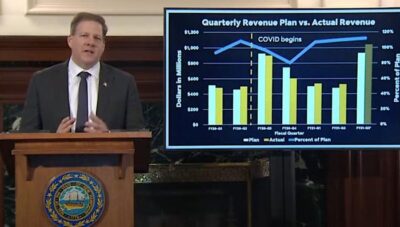Christian Wade / The Center Square
Cities and towns would have more flexibility to expand to build affordable housing under a proposal sent to Gov. Chris Sununu for consideration.
The legislation, which was approved by the state Senate last week, would allow local governments to offer tax breaks for housing developments anywhere within their borders, if a third or more of the units qualify as affordable housing.
Under current laws, local governments can offer “community revitalization” tax breaks for housing and redevelopment but must designate a specific area for the projects. About 60 communities participate in the program.

It’s not clear whether Republican Gov. Chris Sununu will sign the bill, but he has supported tax initiatives aimed at boosting the amount of affordable housing in the state.
The bill’s primary sponsor, Rep. Casey Conley, D-Dover, said the strict requirements of the current law make it difficult to build new housing units.
“It’s constrained to city and town centers, which makes it less likely that affordable housing would be built there,” he told members of the Senate Ways and Means Committee during a recent hearing on the bill. “Under this bill, cities and towns decide where they want to use these provisions.”
HB 154 would also extend the timeframe that tax relief could be offered from 9 to 10 years.
New Hampshire is struggling from a lack of affordable housing, with estimated 20,000 new units needed to fill the current demand, according to the New Hampshire Housing Finance Authority.
“There is an extraordinary need for housing development in the state,” Ben Frost, the authority’s managing director for public affairs and policy, said during a recent hearing on the proposal. “There’s a need for capital, particularly for developments for people of low income.”
It’s not clear whether Republican Gov. Chris Sununu will sign the bill, but he has supported tax initiatives aimed at boosting the amount of affordable housing in the state.
Earlier this month, Sununu wrote to Treasury Secretary Janet Yellen calling for changes to a federal rental assistance program to help pay for more affordable housing.
He suggested that the rental assistance money could be used for investing in affordable housing rental units, creating incentives for public private partnerships to develop new housing and “reduce the risk of developers and lenders to incentivize development.”
If Sununu signs the bill, the changes would take effect in 2022.


